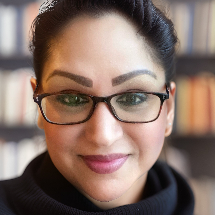Learn / Celebrity Recovery Stories
Celebrity Recovery Stories


November 3rd, 2023| Clinically Reviewed by
Key Points
- Some celebrities choose to make their recovery journeys public.
- Doing so, they encourage others and help in the combined effort to reduce stigma.
Celebrity recovery has long found itself in an unsavory spotlight. Magazines, paparazzi, and the general public place intense focus on the plight of suffering celebrities, often with an air of mockery.
Celebrities coming forward with their addiction and recovery have started changing the lens of celebrity recovery stories. This is a far cry from old reports of a new celebrity in rehab suggesting culpability, shame, and judgment.
Instead of making life unwaveringly easy, celebrity addiction stories suggest fame and fortune were not the cures to pain the general public may first assume. Despite the public scrutiny, many celebrities have recovered and inspired thousands on the way.
Elizabeth Taylor
Elizabeth Taylor was one of the first celebrities who acknowledged their addiction and advocated for recovery. She became addicted to prescription painkillers after a spinal surgery. She also struggled with alcohol addiction.
Elizabeth Taylor decided to publicly announce her admittance to Betty Ford Center in 1983, Betty Ford’s first treatment center. By doing so, Elizabeth helped normalize the need for addiction treatment when such news was scarcely discussed, even in private.
Though her famous career and life have since come to an end, Elizabeth showed many what living in recovery looks like—and that it’s achievable, even as a celebrity. A quote from ElizabethTaylor.com1 reads,
“Her willingness to remain open and honest, while under intense scrutiny, brought millions of people out of the darkness of shame and into the brilliance of healing.”
Jamie Lee Curtis
Jamie Lee Curtis nursed a secret addiction to alcohol and prescription drugs. She was prescribed Vicodin after a minor plastic surgery2, which she then took for years.
A friend finally caught her taking the pills and encouraged getting help. Jamie also stole Vicodin from her sister, who supported her in getting into treatment.
Jamie has been sober since 1999; she revealed this to the public two years after gaining sobriety. She’s attended recovery meetings since her sobriety, sometimes hosting them herself in her set trailer.
She was at first nervous she’d lose sponsorships and acting roles, but that was far from the case. Even in the earlier days of outspoken addiction recovery, her story was still widely well-received.
Her public journey and commitment to the sober community have made her an encouragement to celebrities and non-celebrities in recovery.
Explore Drug Addiction Treatment Centers
Bradley Cooper
Bradley Cooper used alcohol, drugs, and “mean humor”3 to fit into the environment of Los Angeles actors. Despite his efforts, he realized he hadn’t made progress in becoming more popular—and was even doing the opposite.
In 2004, Bradley’s friend, Will Arnett, held an intervention to help him see the scope of his addiction and the harm it caused (forgetting to let his dog out all day after being on cocaine, for example). Cooper focused on his sobriety from that moment on and has been sober for almost 20 years.
Treatment also helped him grow his self-esteem and become confident without using substances to fit in. Now, he’s known to be generous, charming, and kind.
Robert Downey Jr
Robert Downey Jr’s experience with drugs began at age 64, when his father offered him marijuana. They used various substances together throughout his childhood. Downey Jr, like many others, was soon caught in the cycle of using to self-soothe and hide from the negative effects his addiction had on his life.
Robert Downey Jr has been arrested multiple times for drug use5 and spent a year in prison. After his third arrest, he checked himself into rehab and has stayed sober. A recent documentary featuring his late father details his recovery and history with addiction.
After becoming sober, Robert Downey Jr went on to have a wildly successful career. He speaks about his addiction and recovery to highlight the sobriety journey and offer his real-life success story.
Daniel Radcliffe
Daniel Radcliffe, best known for his role as Harry Potter, used alcohol to cope with the scrutiny and pressure6 of such a monumental role. He’s said his way of dealing with it was “just to drink more or get more drunk, so I did a lot of that for a few years.”
He would drink to forget he was being watched, then drink more to forget they were watching the “boy wizard” get drunk. As the movies drew to a close, Daniel continued to use alcohol to distance himself from the end and from figuring out who he was outside the role.
With support from friends, he started his sobriety in 2010. He’s been sober since and enjoying new roles outside the wizarding world.
Lindsay Lohan
Lindsay Lohan has a successful acting career freckled with jail time, arrests, and rehab. She described alcohol as a gateway drug for her, and she dabbled in cocaine to fit in with the party scene.
She received her first DUI at age 207 and was in court for various drug/alcohol-related convictions 20 times from 2007-2012. A judge ordered her to go to court-ordered drug rehab in 2012. She credits that as what turned her life around.
After regaining sobriety, Lindsay Lohan moved to the United Arab Emirates for a quieter, more anonymous life. She’s since gotten back into acting and helping others along their sobriety journeys.
Drew Barrymore
Drew Barrymore’s struggles with drugs and alcohol began as young as 9 years old. She attended rehab twice by age 128 and was hospitalized for 18 months following a suicide attempt and continued substance use. Her public struggles with addiction and mental health at first made it difficult to find roles.
After her hospital stay, Drew emancipated from her parents. She eventually found success in acting again and married. She then divorced and married again later, having two children before a second divorce.
Her second divorce in 2016 drove her to alcohol use9. She says, “It was just trying to numb the pain and feel good—and alcohol totally did that for me.” An unnamed rehab facility and her daughters helped her recover.
Now, Drew Barrymore inspires other celebrities to talk about mental health and addiction on her talk show The Drew Barrymore Show and beyond.
Ben Affleck
Ben Affleck rose to fame in the early 90s. He went to rehab for alcoholism10 and a reset in 2001, then again in 2017 and 2018.
A divorce in 2016 exacerbated his drinking. He went to rehab again, regained sobriety, and has since had relapses—some of which were famously documented. But he didn’t let that derail his recovery.
Ben has become strong in his 12-Step program and, more generally, as a celebrity in recovery. He’s been quoted to say11,
“It doesn’t really bother me to talk about alcoholism and being an alcoholic. It’s part of my life. It’s something that I deal with. It doesn’t have to sort of subsume my whole identity and be everything, but it is something that, you know, you have to work at.”
Demi Lovato
Demi’s first experience with drugs came when she was 13 and prescribed opioids after a car accident. Bullying and an early rise to fame led her to start cocaine in 2009, at age 17.
A sexual assault, and the coping skills she used after, eventually led her to treatment for self-harm and an eating disorder in 2010. There, she was diagnosed with bipolar disorder12. Demi checked into a sober home shortly after, in 2013.
Demi stayed sober for 6 years after years of heavy drinking and drug use (mainly cocaine). She highlighted her eating disorder recovery in 2017. But in July of 2018, she suffered a near-fatal heroin overdose13. After a 2-week hospital stay, Demi was released.
She later relapsed on heroin, which served as another wake-up call. Demi got back into treatment and adopted a California sober approach to recovery, which meant she still used weed and alcohol in moderation. In the last couple years, she’s changed her approach to sober-sober14, or not drinking and using drugs in any amount.
Now, Demi continues to take her journey day-by-day with an attitude of humility and hope.
John Mulaney
As one might expect, comedian John Mulaney describes his addiction with a unique level of hilarity. He first went to rehab in December 202015 after initially getting sober in his early twenties.
He became addicted to cocaine and prescription pain pills, which he kept on hand through shady (or clever) routes. One included buying and pawning a watch to purchase drugs with the cash. In other schemes, he went to low-rated doctors who he knew wouldn’t turn down the prescription requests of any new patient.
At first, he feared the public’s response to his addiction and how it went against his public-facing demeanor. However, many received the news with little to no judgment, instead feeling glad he sought help. This highlights the upward swing in the public’s perception of addiction.
He credits his friends and their intervention as what got him to get help. Reflecting on his 3-year sobriety, he says, “I used to care what everyone thought about me so much…And I don’t anymore. Because I can honestly say, ‘What is someone gonna do to me that’s worse than what I would do to myself?'”
Start Your Recovery Journey
Time has shown the deep humanity of celebrities, despite what the media might have us believe. Their stardom doesn’t save them from suffering; but it can make them excellent advocates for recovery. Money and fame didn’t make them recover. Their own personal choices and efforts did.
Whether or not you’re a famous actor, comedian, or other celebrity, you have resources for your recovery. Celebrity addiction stories highlight that truth. A residential rehab could provide the safe, structured environment you need to begin, and maintain, your recovery.
You can browse our list of rehabs to see photos, reviews, insurance information, and more all in one place.
-
“The Glamour and Creativity of Elizabeth’s Fragrances.” Elizabeth Taylor, https://elizabethtaylor.com/the-glamour-and-creativity-of-elizabeths-fragrances/.
-
Malkin, Marc. “Jamie Lee Curtis Opens Up About Being 20 Years Sober, Going Public With Her Addiction.” Variety, 5 Nov. 2019, https://variety.com/2019/biz/features/jamie-lee-curtis-sober-recovery-addiction-1203392102/.
-
Ushe, Naledi. “‘I Was so Lost’: Bradley Cooper Opens up about Addiction, Will Arnett Helping Him Get Sober.” USA TODAY, https://www.usatoday.com/story/entertainment/celebrities/2022/06/15/bradley-cooper-addiction-sobriety-journey-will-arnett/7632383001/.
-
“Robert Downey Jr. and Late Dad Get Candid About Becoming ‘Stuck’ in ‘Drug-Culture Life’ in Sr. Doc.” Peoplemag, https://people.com/movies/robert-downey-jr-recalls-drug-addiction-sr-documentary/.
-
News, A. B. C. “Robert Downey Jr. Talks About Addiction and Passing It to His Son.” ABC News, http://abcnews.go.com/blogs/entertainment/2014/09/robert-downey-jr-talks-about-addiction-and-passing-them-to-his-son.
-
“Daniel Radcliffe Says Harry Potter Turned Him into an Alcoholic.” The Independent, 15 Mar. 2020, https://www.independent.co.uk/arts-entertainment/films/news/daniel-radcliffe-alcoholic-harry-potter-desert-island-discs-bbc-a9403221.html.
-
Rusk, Connie. “Lindsay Lohan’s Troubled Past from Arrests to Rehab as Star Turns Life Around.��” The Mirror, 4 Dec. 2022, https://www.mirror.co.uk/3am/us-celebrity-news/how-lindsay-lohan-turned-life-28630038.
-
Hattenstone, Simon. “Drew Barrymore: ‘My Mother Locked Me up in an Institution at 13. Boo Hoo! I Needed It.’” The Guardian, 25 Oct. 2015. The Guardian, https://www.theguardian.com/culture/2015/oct/25/drew-barrymore-mother-locked-up-in-institution-interview.
-
Andrew, Scottie. “Drew Barrymore Opens up about Her Sobriety and Why Alcohol ‘did Not Serve’ Her.” CNN, 11 Dec. 2021, https://www.cnn.com/2021/12/11/entertainment/drew-barrymore-sober-two-years-cec/index.html.
-
Barnes, Brooks. “Ben Affleck Tried to Drink Away the Pain. Now He’s Trying Honesty.” The New York Times, 18 Feb. 2020. NYTimes.com, https://www.nytimes.com/2020/02/18/movies/ben-affleck.html.
-
Macke, Johnni. “Everything Ben Affleck Has Said About His Sobriety.” Us Weekly, 16 Mar. 2023, https://www.usmagazine.com/celebrity-news/pictures/everything-ben-affleck-has-said-about-his-sobriety/.
-
Carroll, Heather. “Demi Lovato: Bipolar But Staying Strong.” Treatment Advocacy Center, https://www.treatmentadvocacycenter.org/fixing-the-system/features-and-news/2036-demi-lovato-bipolar-but-staying-strong.
-
Ganz, Caryn. “How Honest Can Demi Lovato Be?” The New York Times, 16 Mar. 2021. NYTimes.com, https://www.nytimes.com/2021/03/16/arts/music/demi-lovato-interview.html.
-
“Demi Lovato, Now Sober Sober, No Longer Endorses Being California Sober.” EverydayHealth.Com, 17 Dec. 2021, https://www.everydayhealth.com/addiction/demi-lovato-is-california-sober-what-does-it-mean-and-is-it-safe/.
-
Battan, Carrie. “John Mulaney Confronts Addiction in His New Netflix Special.” The New Yorker, 25 Apr. 2023. www.newyorker.com, https://www.newyorker.com/culture/cultural-comment/john-mulaney-confronts-addiction-in-his-new-netflix-special.
Return to Resource Library
Our Promise
How Is RehabPath Different?
We believe everyone deserves access to accurate, unbiased information about mental health and addiction. That’s why we have a comprehensive set of treatment providers and don't charge for inclusion. Any center that meets our criteria can list for free. We do not and have never accepted fees for referring someone to a particular center. Providers who advertise with us must be verified by our Research Team and we clearly mark their status as advertisers.


















